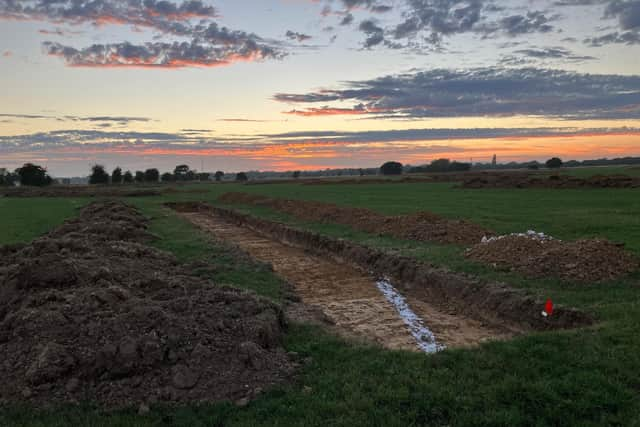Detectorists given firm warning after Roman settlement found in West Sussex
and live on Freeview channel 276
An archaeological dig in Tangmere – to support the planning process for the development of 1,300 homes – has identified ‘areas of archaeological interest’ on the site, which includes the remains of a Roman settlement.
Countryside Properties (UK) Ltd is working with Chichester District Council and Tangmere Parish Council on the development of 1,300 homes and community facilities at Tangmere Village.
Advertisement
Hide AdAdvertisement
Hide AdThis newspaper asked the project team if any photos could be shared of the fascinating findings.


They responded: “This will be considered but the archaeology team must proceed with caution and care in the timing of releasing such material to the public as there is a real concern with potential unauthorised metal detecting of the site, outside of the work hours of these investigations.
"A structured programme of metal detecting is already in place for the project using authorised metal detectorists working closely with the archaeological team.
“There will be site management and controls in place to monitor activity and it is against the law to detect with the aim of locating and removing without permission, archaeological artefacts from land where permission from the landowner has not been granted.
Advertisement
Hide AdAdvertisement
Hide Ad"If unauthorised metal detectorists are spotted on site outside of work hours, members of the public should report their presence to the police.”
As a result of the discovery, the University College of London's (UCL) Archaeology South-East team will be undertaking archaeological excavations across 14 hectares of the site ‘over the course of the next three years’.
The excavation will cover 14 hectares, with work commencing in April 2024 and running until late 2026.
Comment Guidelines
National World encourages reader discussion on our stories. User feedback, insights and back-and-forth exchanges add a rich layer of context to reporting. Please review our Community Guidelines before commenting.